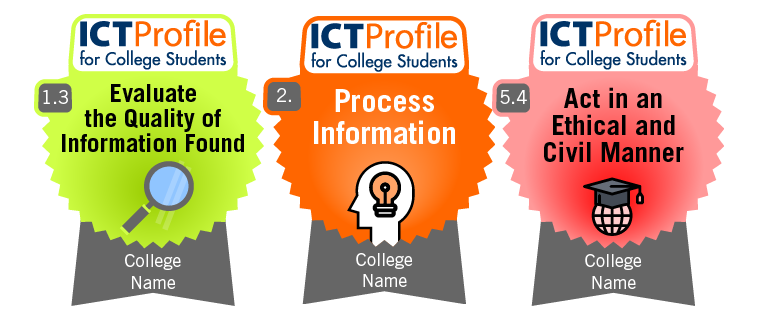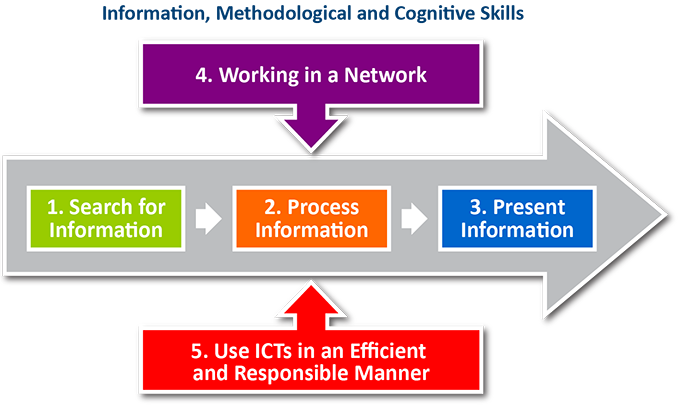Do smartphones and tablets have a place in CEGEPs? An interview with Nicole Perreault, community leader for the ITREP Network
On January 4, 2018, the Journal de Québec published an article entitled: “Tablettes peu utiles au cégep pour les « finissants du iPad » : ces étudiants observent un décalage lorsqu’ils arrivent au collégial” (Tablets not so useful in CEGEP for “iPad graduates”; these students notice a gap when they arrive in college). This is one of the conclusions of a study by the team of Patrick Giroux, a professor at the Université du Québec à Chicoutimi, on the use of a tablet by approximately 80 students, as part of their high school studies. Most of them are now in CEGEP.
Among the graduates, 65% are allowed to use their tablet in class, but only a third of them use it on a regular basis. Among the students who do not bring their tablet to school, half of them prefer to use a laptop while others state that their iPad is simply not useful in CEGEP.
This study seems, at first glance, to challenge the colleges’ response to the digital tools used by today’s youth. Le Portail talked with Nicole Perreault, community leader for the ITREP Network, who deals with this issue on a daily basis.
Technological tools should support the acquisition of competencies, skills and higher knowledge, not the opposite
Nicole Perreault states, from the outset, that she has some reservations about this type of study on the use of tablets. According to her:
It is not the tool that matters; it’s how we use it. In high school, if the student developed digital skills with a tablet, this student, when in CEGEP will have the choice to either continue using a tablet or experiment with another technological tool, such as a laptop, unless the program of study imposes the use of software applications available only on a particular tool.
However, according to our observations students entering CEGEP know how to use technology but only at a functional, recreational and superficial level. They have significant information processing weaknesses such as:
- Defining a research topic
- Identifying key words
- Evaluating the reliability of sources
- Analysing and summarising information
Furthermore, we observe a lot of plagiarism in higher education. We are very far from an effective use of technology for learning.
“This debate puts a damper on what is of most importance: the knowledge, know-how and soft skills associated with the use of digital technology”
Nicole Perreault believes that what really matters is that our students develop skills in finding, processing and presenting information, that they know how to collaborate in a network and know how to use technology in a responsible and efficient way. These are skills that are essential for pursuing studies, for their future professional life and even for people’s daily lives.
It is important that our students use technology that supports other skills. In this context, questioning the use of tablets seems to be an unnecessary debate. We are missing the point: knowledge, know-how and the soft skills associated with the use of digital technology are what matter most, no matter what tool is used. Whether I learned how to drive in a Volkswagen Beetle or a BMW isn’t important. What matters is that I have developed skills that allow me to be a safe driver. The same reasoning applies to using technological tools to acquire competencies, skills and higher knowledge. It is not the use of the tool as such that is important.
Tablets or laptop: is a debate still necessary?
About 6 years ago, we observed a general enthusiasm for the tablet and approximately 40 projects using tablets were created in the college network for different programs. The APOP, in collaboration with the Cégep de Rivière-du-Loup, even developed the Éducapplis website, an app directory for tablets and their pedagogical use. The overall interest in tablets seems to have decreased and we note that there is an increased interest in laptop projects for the programs.
As I mentioned earlier, the learning acquired on a tablet is easily transferred to a laptop and vice versa. What is important is to know how to use the technology with the other skills required in the labour market or at university.
Dealing with this reality in 2018
Nicole Perreault sees herself as an educator. “In my opinion, technology is there to support pedagogy, not the contrary”. But she reminds us that CEGEPs are higher education institutions and that most students are young adults. This is not the first time in the CEGEPs’ history that new technology has been introduced. Some of you will recall the introduction of tapes, videos, television, even calculators…
At first, calculators were not welcomed in the classroom: students had to learn how to calculate by hand. Today, we know that calculators are very useful for carrying out complex calculations rapidly and that they are very efficient. We use this time now for other activities that are more complex.
The technology is here to stay and I don’t see myself forbidding its use to higher education students. Of course, managing classrooms in the digital era entails numerous challenges but it also provides an opportunity to reflect on one’s pedagogy and on “composing with the situation.
Teachers may wonder how to reach their students by using the tools that students are accustomed to and by associating those tools with pedagogical strategies. The college network provides a lot of information on classroom management in the digital era. Speaking of which, Profweb provides 3 in-depth reports featuring this subject that I invite teachers to read.
The smartphone challenge
Reacting to the challenge that smartphones have become ubiquitous in our lives, Nicole Perreault states that a recent study [in French] shows that 94% of students own a mobile phone. Knowing this, maybe we should consider how best to use this tool in an academic context.
I believe that it can be done. The use of smartphones is forbidden in some colleges, in some classrooms or by some teachers. But for how much longer will that last? It’s hard to say. On the other hand, some teachers are interested in the potential use of mobile phones, while nevertheless respecting their own needs. Many teachers are at ease with technology while others are less so. Some experiments allow us to see where teachers stand on the use of technology with their students and how teachers might better deal with it.
A digital badge project to certify and recognize the mastery of informational and digital skills
In order to support the mastering of digital and informational skills, the ITREP Network created the ICT Profile for College Students. The ICTProfile.ca, hosted by Profweb, provides resources for teachers and students to support them in the development of their skills. This framework is used more and more in the college network and has generated many projects, including the digital badge project. Five colleges are currently experimenting with the granting of digital badges to students to certify and recognize their mastery of ICT Profile skills.
In addition and parallel to the experimentation on digital badges, we are developing a website, “BadgeCollegial.ca” where each college will benefit from its own space to grant their own badges, to recognize either formal or informal skills, prior learning or student involvement.

Some digital badges developed by the ITREP network to certify the mastery of the different skills and objectives of the ICT Profile.
Still much reflection and research to come
New and more sophisticated tools may appear; it will always be up to us to know how and why to use them. Teachers will always have to ask themselves, “How can I use this to improve my students’ learning?” This reflection, which has already started, by the way, will inevitably have to be carried out in the next few years. Experimentation in the college network has shown that technology used appropriately has a positive impact on student success. There is still, however, much reflection and research required on this subject.


